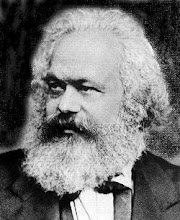 0
comments
Tuesday, 28 December 2010
0
comments
Tuesday, 28 December 2010
In free societies and tyrannies alike, the hair on, and around, a man’s head always sends an ideological signal.
One of the first changes decreed by the Islamists of Hamas after their victory over the secularists of Fatah in the 2006 Palestinian elections was that policemen were allowed to grow beards. But the theology of male hair can be controversial. Orthodox Christian priests generally sport beards in humble imitation of Jesus Christ; the most conservative say a priest’s hair and beard should not be cut because his whole body has been sanctified by the rite of ordination. Christian theologians still argue over what Saint Paul meant when he told the people of Corinth that for men to have long hair was shameful, while for women, flowing tresses were something glorious (although they should keep them covered, perhaps to avoid tempting wayward angels). Samson, one of the heroes of the Hebrew scriptures, seems to exemplify a different understanding of the power of hair: his awesome strength abandoned him as soon as his locks were trimmed.
For Muslims, imitating the faith’s founder is also given as a reason for growing beards. But there are many arguments over whether the practice is mandatory or just recommended. And the more beards are promoted in Islamic societies, the more unpopular they become in places that are wary of Islam—such as India, where a court opined last year that a Christian college was entitled to ban beards. To the dismay of Indian Muslims, the judge declared: “We do not want Talibans here.”
In Iran men can choose whether to shave or not, but Afro-sporting youths avoid beards because they would carry a hint of conformity with authority. And as Anthony Synnott, a British-born sociologist, points out, the only constant in the history of hairstyles is that each generation of men likes to defy its fathers (and father figures). In the 1960s both skinheads and hirsute hippies were challenging the uniformity of a generation that had received its formative haircuts while in uniform. Once every possible length had been tried, the only way to impress the world was through colour: rainbow-hued Mohawks, stripes and wings.
But in free societies, anything—however outrageous it seems at first—becomes respectable after a while. (Think how the body-piercing favoured by punk-rockers lost its power to shock after young bankers started sporting discreet earrings with their pinstriped suits.) One of the rising stars in Japanese politics is 58-year-old Yoshimi Watanabe, whose “Your Party” has just won 11 seats in the upper house of the legislature. Among his trademarks is a faux-hawk or “antenna” hairstyle, reportedly modelled on David Beckham’s appearance in 2002; voters apparently like it.
But Japan is no paradise for men in search of trichological freedom. The municipality of Isesaki has just told its male employees to shave their chins on grounds that “some citizens find bearded men unpleasant, so beards are banned.” The announcement coincided with the start of the summer season, in which men are encouraged to cool down by doffing their jackets and ties and save on air-conditioning. A bearded, open-necked town clerk, it seems, just wouldn’t look proper.


























